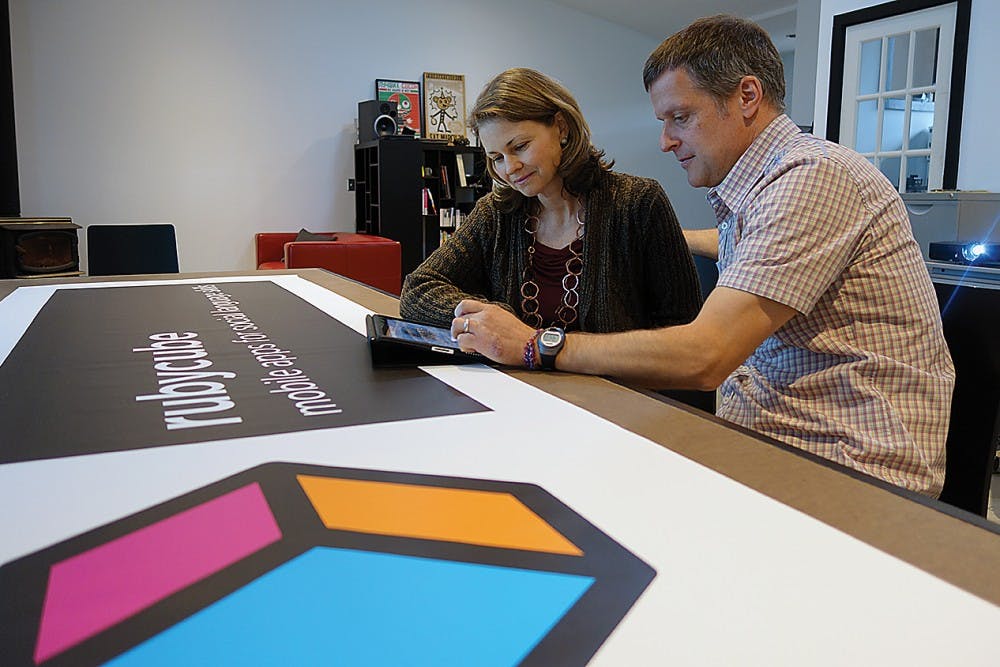Jen Minnelli is a speech language pathologist for outpatient pediatrics at Duke University Hospital. Pete Minnelli has more than 20 years of experience with graphic design and branding.
Together, the Chapel Hill residents have two children, Ruby and Buddy; a three-legged dog named Hooper; and rubycube, a company for mobile apps aimed at helping children with social challenges including high functioning autism, attention deficit hyperactivity disorder and obsessive-compulsive disorder.
Ruby, the couple’s daughter and the company’s namesake, is 11 years old and was diagnosed with high functioning autism, ADHD and anxiety. Frustrated by the lack of understanding among educators who were unable to adequately help Ruby with her social disabilities, the Minnellis launched the first rubycube app a year ago, building a team of people who have all been touched by autism.
The company now offers a suite of six apps that tell interactive animated stories about kids navigating different social situations. With names like Trudy Goes to the Beach and Ruby Gets in the Game, the three apps available in the iTunes store have reached about 7,000 downloads.
“We’re still in full on start-up mode,” Jen Minnelli said. “And it’s just a matter of getting it into the hands of people who can use it.”
Wednesday is World Autism Day, kicking off April’s Autism Awareness Month. The Minnellis also hope their app will raise awareness about the social challenges people with autism face.
“These are the children who are not going to get the kind of support that kids who have a more severe form of autism may get. These are the kids who are going to be bullied in the mainstream, labeled as a behavior problem by their teachers,” Jen Minnelli said.
“These are the people who, as adults, are going to get fired from many different jobs because they don’t understand the social landscape. They may be brilliant scientists. They may be brilliant practitioners of whatever their chosen profession is, but they will not understand the social landscape well enough to keep and maintain a job.”




